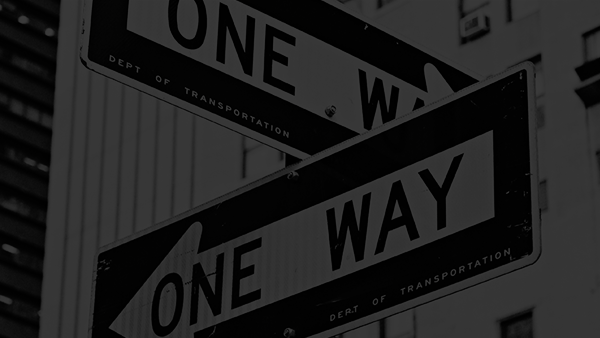Integrated Logistics, and Digital Transformation: Get on Board!

Published on 11/16/2021. Translated by Reinaldo Zaruvni.
In an era in which consumers are more and more demanding, and in which competitiveness is higher than ever, operational processes integration became a need for those companies that desire to keep themselves in a relevant position in the market. It is not just a competitive differential anymore, since it guarantees cost reduction, more efficiency, and tailored experience. That said, integrated logistics has also become a crucial element for alignment and client satisfaction.
From raw material supply to product delivery, integrated logistics is a complex process that involves several factors, players, and environments. With it, all the operations interact internally, and they result in agile and efficient solutions, leading businesses to a new level of excellence.
Integrated logistics fields
If logistics was merely related to stock management and goods delivery in the past, nowadays it covers many other actions. Therefore, integrated logistics considers every level of a company, from business planning to raw material purchase, including production processes, and goods movement, as well as their distribution. Due to its comprehensive influence, it is natural that it must be divided into certain fields. There are three main ones:
Inbound logistics: responsible for every step related to raw materials supply and control. Encompasses many functions, such as information processing, supplier mapping and management, transportation administration, product warehousing, and quality auditing.
Industrial logistics: responsible for production processes management within a certain industry, including materials supply, their transportation between different sectors, and production operational aspects.
Outbound logistics: refers to the subsequent stages of production, what occurs until a product reaches the consumer. Route planning, product handling, deliveries, carriers hiring, exchanges and returns planning (reverse logistics), invoices issuing, and cargo tracking are part of it.
Integrated logistics main benefits
Integrated logistics application may improve the performance of different departments within companies or industries, whether they are B2B or B2C ones. Check out some of its main benefits.
- It streamlines processes
- It increases control over operations
- It reduces communication errors likelihood
- It reduces costs and waste
- It allows a more strategic planning
- It makes delivery more open to customers
These and other advantages have one thing in common: they meet increasingly consumers’ high expectations while keeping production processes focused on efficiency, and cost reduction. For customers, the transparency, and the speed of delivery provided by integrated logistics are decisive factors at the time of purchase, then such a management method improves the audience’s loyalty and adds value to the brand which applies it.
Also, the need for interconnectivity between different players who are in different supply chain stages proves that communication is the foundation of integrated logistics. After all, companies are always connected to the system as much as their clients and the carriers hired by them, and all these players keep monitoring every business stage, from product production to delivery. Besides, this communication highly incorporated into processes may be improved when combined with Digital Transformation, which puts technology, and innovation at the center of internal business activities.
- You might be interested in: Fintech as a Service: financial transactions’ future is already here
Digital Transformation, and Logistics 4.0
Contrary to common understanding, Digital Transformation is not just about integrating technology solutions in processes. It especially concerns a mindset change to improve business performance. A corporate culture aimed at Digital Transformation means having knowledge about innovative solutions focused on consumer experience within reach, as well as about how to use them.
Digital Transformation has become essential for a complex process such as integrated logistics implementation. That is because the use of cloud software, technological tools, and even artificial intelligence became a need nowadays, as it strengthens companies’ and industries’ abilities to reach a whole new level of expertise.
- You might be interested in: The different types of innovation
Logistics 4.0, and its possibilities
Technology is precisely Logistics 4.0’s ground, which focuses on smart-resources usage for processes improvement, turning them into automated and high-performance ones. Among activities that may benefit from it are demand forecasting, supply planning, damage detection, predictive maintenance, autonomous vehicles implementation, and dynamic pricing.
All business stages are positively impacted by Logistics 4.0, from supplier relationships to order tracking. Digital products can offer smart management and strict control over production processes’ different moments.
Talking about artificial intelligence, it is present in robots capable of controlling and packaging products, in security monitoring systems, in aerial imagery for decision-making, and even in chatbots (those responsible for customer contacts, and insights provision). Devices connected to AI may even gather, organize, and analyze important information related to different supply chain stages.
Does it seem too far from reality? Logistics 4.0, and companies’ Digital Transformation are already here! An International Data Corporation (IDC) report forecasted $77,6 billion in industrial investments in artificial intelligence in 2022. In other words, competitors are already implementing innovative solutions in their logistics departments. Digital transformation adoption may be the key to business survival.
In addition, possibilities neither are restricted to a specific market segment nor run out. The only thing taken for granted is that logistics is on the verge of a revolution based on AI and Digital Transformation. UiPath, for example, developed a machine capable of performing 99% of back-office tasks. Hi Arya, on the other hand, created a robotic kettle that combines AI, and the Internet of Things (IoT).
In Brazil, there is MatrixCargo, a company from the freight transport industry which chose AI to calculate cost savings and optimize drivers’ trips. Its solution considers vehicle size, demand, and fixed cost (tolls, trip distance, towing capacity, and driver’s work hours). With Digital Transformation, MatrixCargo became able to save costs, plan more efficient routes, reduce pollutants emission, and get to a solution focused on customer experience.
MatrixCargo partnered with ateliware to achieve such great results. Is your company seeking Digital Transformation? Choose a technology provider specialized in creating and improving digital solutions no matter the industry a business belongs to. Contact us.
References:

CEO e Founder at ateliware | Possui 16 anos de experiência com sistemas ERP, é App Full Stack developer e co-fundador da ateliware. Gosta de tocar violão e sempre que pode empresta seu talento musical para o grupo da igreja.

3 ótimos motivos para investir em softwares customizados
Manoel Souza, CEO da ateliware, mostra quais são as vantagens de investir em softwares customizados e aponta que a transformação digital vai modificar as operações das empresas positivamente + leia mais


